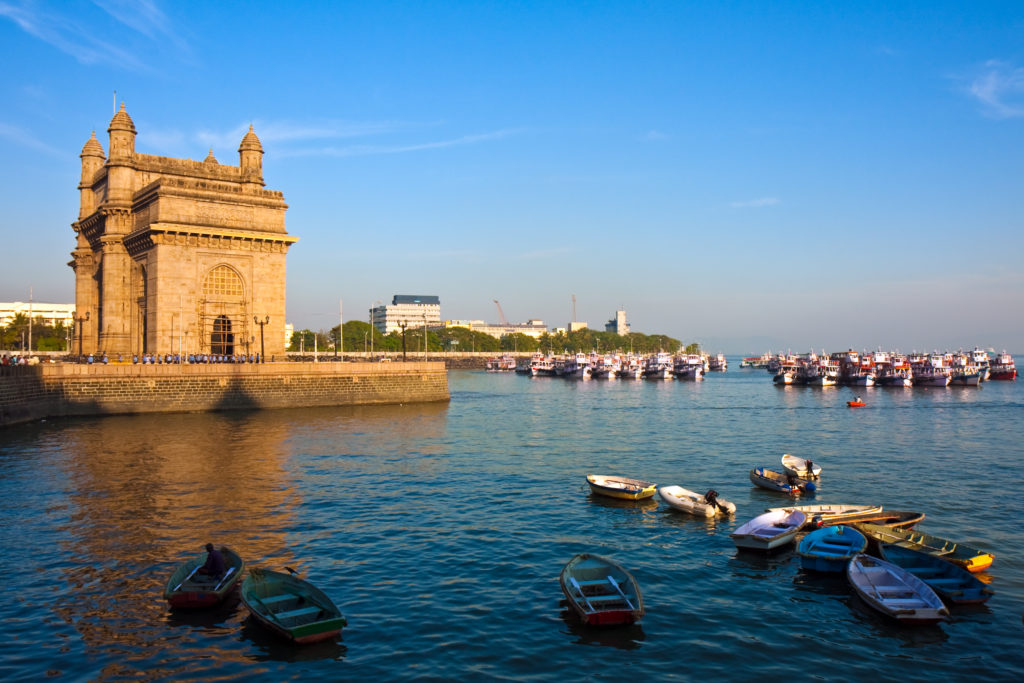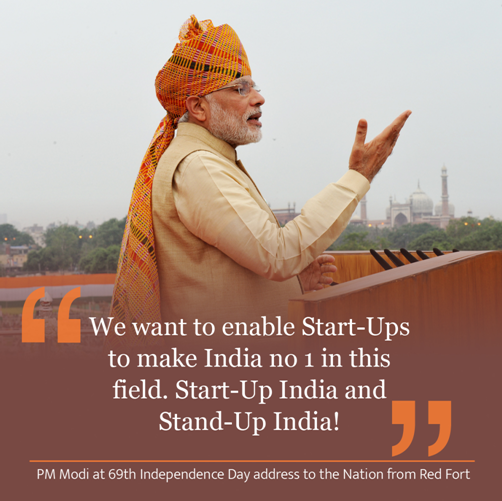India’s startup ecosystem has come a long way in recent years, making it one of the most exciting places for entrepreneurship today.
With its growing reputation as a thriving hub of innovation, India has become a force to be reckoned with in the world. It has the 3rd largest startup landscape and is expected to witness a YoY annual growth of 12-15%. According to a NASSCOM report, there are around 25,000-27,000 active tech startups in the country at present, and around 98,074 DPIIT-recognized startups overall. Women entrepreneurs are growing more substantial as well. As per recent figures, women comprise 14% of the total entrepreneurs in India, which is around 8 million!
This growth has been fueled by several factors such as corporate support in terms of funding, government support and policies, a growing talent pool, and a large market that has a billion dreams and is constantly hungry for new solutions.
This surge can also be attributed to the dramatic increase in the number of mobile and internet users. There are over 700 million internet users in the country and around 600 million smartphone users, making India the second-largest market, just after China, which has led to a huge demand for digital solutions across various sectors like healthcare, education, finance, and e-commerce. All of these industries are suffering from serious inadequacies and inefficiencies, but things are starting to change. All these catalysts acted as a means for the Indian population to work on something great and change the world for the better.
It’s a given that startups are essential for the economy of any country in today’s competitive market. It creates employment opportunities, which is necessary for a populous “young” country like India. It attracts new investments, promotes research and development, democratizes the technology benefits, and increases the influx of cash and revenue, thus significantly boosting the economy and GDP as well. According to the World Output Projection Report by IMF, India’s GDP is expected to grow by 5.9% in 2023-24, surpassing all the developed nations.
In this blog, we’ll deep dive into the Indian startup scene and explore why it has become the place to be for entrepreneurs, investors, and tech enthusiasts. We’ll explore some of the success stories and challenges, as well as the opportunities and benefits it offers.
Buckle up, and read on!
Exploring India’s Startup Hubs
India’s startup ecosystem is spread across the country, with several cities emerging as powerhouses of innovation. These hubs have not only attracted a lot of investment, thus enriching the city to a great extent but have also attracted talent from both within the country as well as across borders. They are playing a crucial role in solving some of India’s most pressing problems in niche areas that multinational corporations are not willing to dabble in just yet.
Bangalore
Bangalore is often known as the Silicon Valley of India and is largely recognized as the startup center of the country due to the sheer number of small businesses that have emerged in this city over the last few years. It has a vibrant culture and a highly skilled talent pool and is home to some of India’s most successful startups like Flipkart, Ola, and Swiggy (among several others). According to a report by NASSCOM, Bangalore alone accounts for around 25-30% of India’s deep-tech startups with a focus on sectors such as AI, Blockchain, and robotics, and the city topped the startup funding chart in 2022 with a whopping $10.8 billion recorded. Several prominent global companies like Amazon, Google, and Microsoft have also set up their research centers- thus, constant innovation and progress are a given here.
Delhi-NCR
Delhi-NCR is often considered a hotbed for eCommerce, fintech, and edtech and is the home of some of the most promising startups in India. Due to the political and geographical significance of this region along with a large consumer market, Delhi-NCR has attracted several investors and accelerators over the years. According to NASSCOM, it accounts for over 20% of the total startups in the country, and about 15-20% of deep tech startups have originated here.
Recognized names such as Snapdeal, Zomato, PolicyBazaar, and Inshorts have their headquarters here, along with popular fintech companies such as MobiKwik, Paytm, and Bharatpe which have disrupted traditional banking systems through innovative solutions which have changed the way India does business and makes payments.
Mumbai
Often known as the financial capital of the country, Mumbai is one of the oldest and most established hubs for business and production in India, and now is also gaining prominence as a major center of innovation with revolutionary startups taking over the scene. It boasts of 565 startups according to StartupBlink which represents about 16% of India’s startups- this makes it the 3rd best ecosystem for entrepreneurship in the country. It’s home to unicorns like PolicyBazaar or ed-tech startup Upgrad. Since Mumbai is known for its thriving media and entertainment industry, there are also startups like Saavn and BookMyShow that are leaving an indelible mark. Other noteworthy names that are headquartered here include Ola, Nykaa, Dream11, and Upstox.
Pune
Pune is highly overlooked and undervalued as a destination for startups to set up shop, especially with its keen focus on enterprise software, manufacturing, and education. This city has a strong ecosystem of intelligent mentors, investors, and incubators that are looking to disrupt traditional industries and do things in a different way. According to NASSCOM and StartupBlink, Pune accounts for around 5-6% of India’s total number of startups and is ranked 4th in the country because of this. Well-known companies like FirstCry, Xpressbees, and TorkMotors are headquartered here.
Hyderabad
Hyderabad, once known mainly for its delectable cuisine, has quickly risen in prominence as a key startup hub in South India, with a keen focus on biotech, healthcare, and artificial intelligence. According to StartupBlink and NASSCOM, Hyderabad accounts for around 7-8% of India’s startup ecosystem, which has attracted several global players like Novartis to set up research centers in the city. Neeman’s, MapMyGenome, Bharat BioTech, Darwinbox, and SkinKraft are just a few of the well-known organizations that are headquartered here.
These 5 cities are not only important startup hubs, but they also play a crucial role in contributing to the country’s economy. According to a report, India will have as many as 250 unicorns out of the 200,000 startups which will employ upwards of 3.25 million people by 2025 and will amass up to 150-200 billion in foreign investment by then. Thus, startups will be the key driving force behind India’s goal to become a USD 3 trillion economy.
The Rising Stars Of India
One of the reasons why India’s startup ecosystem is so exciting and revolutionary is because of all the unique startup ideas that cater to the country’s specific needs and challenges. From healthcare to agriculture, education to fintech, Indian startups have identified crucial gaps in the market and utilized technology and a forward-thinking approach to craft innovative solutions for the betterment of society at large.
One such example is Practo, a health-tech company, that focuses on revolutionizing how patients connect with doctors and gain access to medical care. They offer services such as online consultations, medicine delivery, and lab tests. This has changed the game by making healthcare services more accessible to the remotest regions within the country.
Agrostar is one of India’s most prominent ag-tech startups which provides farmers with access to information, products, and services- all through their mobile app. This is game-changing as for a long time, farmers in India had been suffering from multiple challenges and requirements, which are now being catered to through technology as they are offered information about crop health, weather forecasting, and pest management strategies. This has helped improve both the productivity and profitability of the farmers in the country and created a better, more sustainable agricultural system. In the education sector, BYJU’s has gained significant prominence and aims to transform how students learn. Historically, children were expected to “mug up” their lessons but through this startup, they gain access to interactive lessons, quizzes, and practice tests- making learning fun and engaging with personalized feedback.
It would be impossible to talk about startups and not mention BharatPe and Paytm. These fintech startups have become synonymous with digital payments in India and offer a range of services that have changed the way Indians manage their finances and make payments. They have also worked to increase financial inclusion within the country. Also in this space is Razorpay, which offers effective payment solutions for businesses that simplifies the process.
It’s worth noting that not only are Indian startups changing the game within the country, but many have also achieved global success. One such example is Freshworks, a cloud-based customer engagement software company that has expanded in 30+ countries. They claim their success lies in their ability to focus on perfecting the customer experience and their suite of easy-to-use software tools that help businesses streamline the customer engagement process.
Another successful Indian startup making waves on the global stage is Ola, a ride-hailing/sharing platform that operates in multiple countries like Australia, New Zealand, and the UK. They are now even offering electric vehicle rentals and are taking active steps to continue innovating for sustainability and making people’s lives easier.
In the eCommerce space, Flipkart is a success story that cannot be missed. It is an online marketplace and its platform is available to users in more than 200 countries now. They have consistently focused on keeping their prices low, quality high, and transforming how Indians shop online from the comfort of their homes.
These successful startups have several factors in common that have contributed to their success. They have focused on providing innovative solutions to address specific needs. They have also been agile in adapting to changing market conditions and have made strategic acquisitions and partnerships to fuel their growth.
The Role Of Governmental Support
There have been several catalysts which have helped the Indian startup ecosystem bloom over the years. One of the major drivers is the relentless support from the government through the various policies, initiatives, programs, and schemes which actively encourage entrepreneurship within the country across industries.
One such initiative was Startup India, launched in 2016, which aimed to provide a conducive environment for startups in the country through:
- Simplification and handholding through legal support, patent filings, and cohesive information
- Funding and incentives to infuse more capital into the ecosystem along with a credit guarantee scheme, so entrepreneurs are not held back by a lack of funds
- Incubation and industry-academia partnerships through innovation labs, events, competitions, and grants.
This program also launched various schemes like the Startup India Seed Fund and the Atal Innovation Missions, which provide knowledge about entrepreneurship even in schools and universities.
Another successful initiative that correlates well with this is the Atmanirbhar Bharat vision launched by Prime Minister Narendra Modi which focused on making India a self-reliant nation, with a concern for the world’s happiness and peace. As a part of this, the government has launched several schemes and policies that focus on promoting local manufacturing and supporting indigenous companies. The Make In India initiative is another program that aims to attract foreign investment to the country, promote local production, and encourage indigenous ideas that lead to transformation.
Research and innovation is highly recognized and encouraged within the country by the government. A good example of this would be the National Startup Awards which identifies, supports, and rewards the best startups in the country that are driving the Indian economy and generating measurable impact for society.
Over 4000 startups benefited last year from the various initiatives of the Indian Central government.
Future Prospects: Opportunities and Challenges
We’ve come a long way but the road ahead is even longer and more complex as the Indian startup landscape continues evolving and picks up a rapid pace in the coming years.
The country has a young demography, diverse and large market, multiple funding opportunities, technological advancements, and as discussed above, support from the government. All this formulates the perfect recipe for a nation that is ready to take off and make a huge impact in the world, changing society as we know it.
One of the biggest challenges facing the country today, which is actively hindering the creation and growth of new startups is the lack of skilled workers and an active shortage of talent. India might be a populous country, but there is a dearth of experienced professionals who can hit the ground running from day 1 and accelerate processes.
According to a report by TeamLease titled “Skills strategies for a strong, sustainable, and balanced world of work”, India will need 30 million digitally skilled professionals by 2026, and 50% of the current workforce would need to re-skill themselves in areas of emerging technologies. Just this year itself, around 2 million jobs in artificial intelligence, cybersecurity, and blockchain shall go unfilled due to the lack of talent.
If you’re an NRI, India’s startup scene is earnestly calling out to you.
The country is on the cusp of a revolution that is already changing the game for the economy, society, and the world at large. It is making waves on the global stage and offering solutions that solve the actual problems existing at present. While the Western countries continue struggling due to an economic slowdown and banking crisis, Indian industries have been thriving. According to the Recession Probabilities Worldwide report by Bloomberg, India has a 0% chance of being in a recession while the US and UK are at 65% and 75% respectively. Moreover, according to the World Output Projection Report by World Economic Outlook IMF, India’s growth projections are at 5.9, significantly ahead of the developed countries on the list.
Return home and be a part of something meaningful, something groundbreaking.
Global Talent Exchange is a next-generation tech recruitment platform that connects NRI talent and diaspora globally with suitable opportunities in India. We’ve been on this #ReturnToIndia mission for about 3 years now- a program that celebrates talent mobility and the joy of homecoming.
We’ve helped about 300 NRIs find top-notch opportunities in tech in the country and have helped them through our associated concierge services to fit in well and make the transition as seamless as possible.
From a well-designed portal, testimonials, personal stories, and a step-by-step guide on how to navigate the move- we’ve got you covered.





.jpeg)



.jpg)




